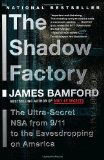I haven't been reading at the pace I want to but I've still be able to squeeze in some books here and there. Here are some mini-reviews of a few of them:
 Sex at Dawn
Sex at Dawn
by Christopher Ryan and Cacilda Jethá
Sex at Dawn is an honest and thorough exploration of the history of human sexuality, and what that means for how we understand our sexuality today. Written by some folks who have clearly done their research, it's part anthropological study and part cultural critique, and it's got plenty of witty humor sprinkled throughout.
Let's be honest, it's easy to take the history and meaning of sexuality for granted in a society that throws images and talk of it in our faces left and right - "surely things have just always been done this way, right?" And there's so much pressure to understand, have and be good at sex while also maintaining an extremely nonchalant approach to being a sexual being. But whatever you think you know about why and how people have sex, why monogamy is held up as a moral imperative in modern culture, and how other cultures and species around the world treat sex and sexuality, you should be prepared to be challenged and entertained by this journey through human behavior. I certainly was!
 Organizing Genius: The Secrets of Creative Collaboration
Organizing Genius: The Secrets of Creative Collaborationby Warren Bennis and Patricia Ward Biederman
This was a quick and fun read, but it didn't have a whole lot of substance or insight to it. The book tells the stories of teams of people who have come together to do something really creative and "great" in one setting or another: the early years of Apple Computer, Xerox PARC, the 1992 Clinton election campaign, Lockheed's Skunk Works, Black Mountain College, Disney's animation studios, etc. The book returns often to a few themes about what it means to organize genius, but the lesson in the end is that you need the right mix of personalities with visionaries, hard workers, salespeople, skilled creative people, etc. to do great things. If you're looking for a how-to manual or a prescriptive approach to building great teams, you'll be disappointed by this book, but if you enjoy understanding some of the details and styles of leadership that made particular teams of people work and not work, then Organizing Genius is a good collection to make your way through.
 The Shadow Factory
The Shadow Factoryby James Bamford
After reading Bamford's Body of Secrets a few years ago, I was sure I'd read everything I would ever want to know about the history and inner-workings of the National Security Agency (NSA). But whereas Body of Secrets was mostly a history with some tales of spycraft and geo-political maneuvering that felt a bit distant, The Shadow Factory is a very modern look at what the U.S.'s largest intelligence agency can do well, what it does poorly, and what that means for the individuals and nation states alike.
As someone who likes to geek out over the details of particular technologies (yes, even when that tech is ultimately used for evil purposes), The Shadow Factory provides a reasonable dose of engineering details. If you're interested to understand how far the federal government will go to, say, tap into a fiber optic cable that they don't have permission to tap into, you may have a hard time keeping your jaw off the floor with the examples here. The other recurring theme (and, by "recurring" I mean repeated to the point of making you wonder if the book's editor was awake) is the constant ethical and legal question of how far is too far when it comes to spying and intelligence gathering (and the trillions of dollars spent to make it happen) for the sake of preventing acts of terrorism. The book generally comes out on the side of those who would suggest too many personal freedoms and privacy rights have been eroded, but it definitely moves past any black and white thinking on the matter.
If you made it this far, let me finish this review by noting again for the record that you should assume every single email, website visit, phone call, and other electronic communication you participate in is being monitored and reviewed by someone in some government agency somewhere. The Shadow Factory makes it clear that there are many powerful people in the world who feel safer that way.
 Breakpoint
Breakpointby Richard Clarke
Breakpoint is a work of cyberwar fiction from Richard Clarke that comes across as a thinly veiled attempt to portray what he sees "in real life" as some troubling parts of what's ahead when it comes to our culture's reliance on networked technologies, genetic and biological engineering, and consolidating of power and wealth in the hands of the few. Think "super-human military soldiers whose special suits are connected to the Internet and then hacked by someone who makes the suits go bonkers" type stuff.
The cool part about this is that Clarke spent a good chunk of his life serving at the highest levels of the U.S. federal government and with a realistic awareness of what kinds of technical and political challenges we face, so even a fictionalized narrative about some of that has a sense of realism to it that you can't find in other novels. The bad part about this is that Clarke is not a very good fiction writer; the book was riddled with flat, canned characters, spelling and grammar mistakes, and plot developments that just didn't make any sense. In the end, it was a fine brain-candy beach book, but don't expect to be moved or drawn into the world Clarke imagines.
 I’m a journalist, publisher, software developer and entrepreneur with experience as a founder and organizational leader. Work with me or learn more about me.
I’m a journalist, publisher, software developer and entrepreneur with experience as a founder and organizational leader. Work with me or learn more about me.